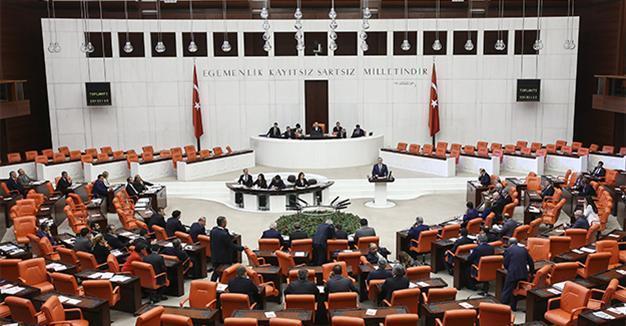Draft constitution to come at earliest by late September: Reports
ANKARA

AA photo
A draft constitution prepared by the ruling Justice and Development Party (AKP) will be brought to Turkey’s parliament for discussion by late September “at the earliest,” reports have alleged, after the government roughly agreed upon a parliamentary program for the summer and excluded works on a new constitution.The AKP’s Central Executive Board (MYK) commenced under Prime Minister Binali Yıldırım on June 8 and roughly designated its upcoming program.
Accordingly, parliament is expected to close at the end of July for a maximum of two months, although sources suggest dates might change based on political developments in the coming days.
In the coming two months, parliament is expected to discuss matters related to national education, measures for retired citizens and a draft proposal to provide legal protection for soldiers involved in security operations against groups listed as terrorist organizations.
The legal shield for soldiers is perceived as the most urgent move, as the government plans to enact it by the end of July at the latest.
Following the board meeting, reporters asked Bülent Turan, the deputy parliamentary group leader of the AKP, about why a draft constitution was not on parliament’s agenda.
Turan, in response, said parliament’s agenda was “full for the next two months.”
Based on this information, reports suggested the draft would be brought to parliament by late September or October at the earliest.
With its recent change in leadership, the AKP underlined that its priority is to change the administrative system through a comprehensive or limited constitutional amendment.
President Recep Tayyip Erdoğan confirmed Yıldırım, a close ally for two decades and a fellow co-founder of the AKP, as his new prime minister on May 22, taking a big step toward the stronger presidential powers he has long sought.
Erdoğan and his supporters argue that they see an executive presidency – a Turkish take on the system in the United States or France – as a guarantee against the sort of fractious coalition politics that hampered Turkey’s development in the 1990s, when it was an economic backwater with little clout on the world stage.
The opposition, on the other hand, has said the system-shift debate is merely part of an attempt by Erdoğan to tighten his grip over the political system.
In response, reports recently surfaced that the main opposition Republican People’s Party (CHP) would draft its own constitution proposal which would enhance the existing parliamentary system. The draft is expected to be completed by the end of June, according to sources from the party.
A team composed of CHP deputy chair Bülent Tezcan and party assembly member Sera Kadıgil, as well as three academics, was assigned to work on the draft constitution proposal. The draft will use 60 articles from the work carried out by an interparty commission tasked with rewriting the new constitution between 2012 and 2014, while remaining articles will be written by the CHP’s team but will require a final evaluation with the participation of constitutional experts.
The CHP’s draft will reportedly plan to empower the parliamentary system, in line with Turkey’s need for a regime based on freedoms, judicial independence and efficient implementation of the rule of law.
















